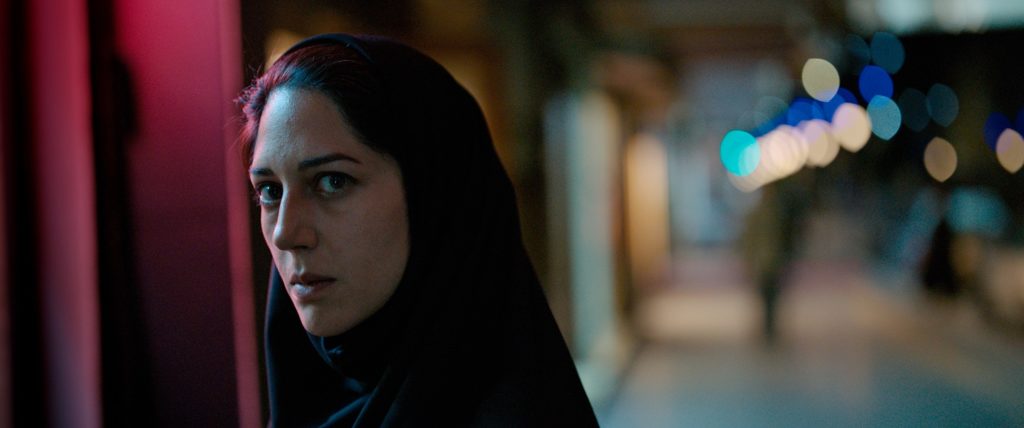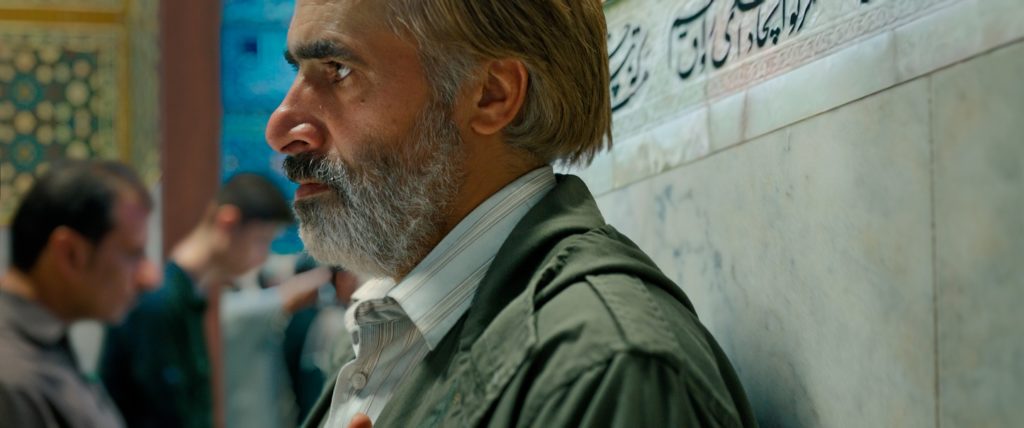
It should be an agreed-upon concept that murder is not acceptable under any circumstance. Self-defense is a legal argument often used that should, in its truthful application, connote that the act of killing someone to prevent being killed negates its definition as murder. But there are those who believe that they serve a higher purpose, and ending someone’s life can be a moral and just cause. Holy Spider presents a chilling and powerful look at one man driven to kill by a religious fervor and the society that is all too accepting of his legitimacy.
In 2001, Rahimi (Zar Amir Ebrahimi), a journalist, arrives in Mashhad, Iran to conduct an investigation into a serial killer who has been murdering prostitutes and leaving them for the police to find. Rahimi partners with Sharifi (Arash Ashtiani), a local reporter who gets phone calls from the killer each time he wants one of his victims discovered. Frustrated with her lack of progress, Rahimi considers putting herself at risk so that she can catch the man responsible for terrorizing the streets: Saeed Hanaei (Mehdi Bajestani).

Holy Spider is based on Hanaei’s real-life story. Rahimi is an invented character who helps to fuel the film, providing a perspective of indignation that will be most relatable to audiences. Rahimi meets with numerous law enforcement officials who are condescending to her and who give credence to baseless accusations about an indiscretion with her editor. Only Sharifi is decent and affords her complete respect, though he too brings up those allegations at first before seeing based on her harsh reaction just how difficult it is for a woman to operate in a country that gives her few rights and always defers to men. Rahimi encounters obstacles from the moment she arrives in Mashhad, when a hotel clerk refuses to give her the room she has booked because she is a single woman, and only acquiesces when she angrily clarifies that she is a journalist.
This is not a pleasant film to watch, and it spares little in terms of its depiction of the brutality Hanaei employs when he overpowers his victims. The ease with which he shifts into his careful routine and exerts force to subdue them even before they realize what is happening is disturbing, and it’s a process that’s shown in a straightforward manner. It’s made considerably more horrific when, in the course of the investigation, it becomes clear that Hanaei believes he has been charged by God to find and punish corrupt women, and there are many within Iranian society who support him. He sees no shame in his actions and fears being caught only because it means he will not be able to continue carrying out his divine mission.

Director Ali Abbasi delivers something very much unlike his previous film, Border, this time focused on two people with starkly different perspectives in a very dark and unsettling setting. Though his community affords it to him, there is no glorification from the film of Hanaei’s actions. Rahimi’s devotion to the truth and to broadcasting it to the world is the driving energy of a film dominated by someone who has assigned himself what he believes to be a noble cause and refuses to allow anyone to tell him that he is not serving something legitimate and holy.
Amir Ebrahimi was deservedly awarded the Best Actress prize at the Cannes Film Festival for a focused and fiery performance, one that captures the anger she feels at being constantly talked down to by men and having her sexual morality probed by powerful people in professional roles. Bajestani conveys a true fervor that feels all too realistic, not exaggerated for dramatic effect and instead all the more unfortunately comprehensible. Holy Spider, which is Denmark’s official Oscar submission for Best International Feature, remains tightly centered on its frightening narrative, offering an all-too-relevant showcase of the dangers of unchecked zealotry.
Grade: B+
Check out more of Abe Friedtanzer’s articles.
Holy Spider opens in New York on Friday, October 28th and in LA on Friday, November 4th.

